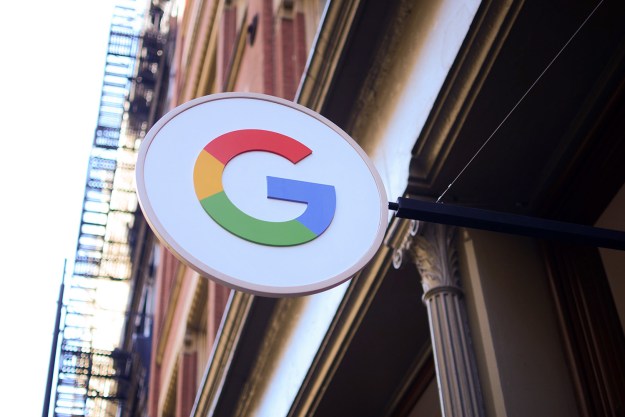
Now Google has adopted a similar tactic — but in this case, to defend the legitimate reuse of copyrighted material. It’s going to raise the cost to content owners of filing baseless copyright infringement claims, protecting not downloaders of music but uploaders of videos to YouTube. It’s a thorough moral switcheroo, and thank you, Google, for pulling it.
Here’s what the company posted on its public policy blog late last week:
YouTube will now protect some of the best examples of fair use on YouTube by agreeing to defend them in court if necessary.
We are offering legal support to a handful of videos that we believe represent clear fair uses which have been subject to DMCA takedowns. With approval of the video creators, we’ll keep the videos live on YouTube in the U.S., feature them in the YouTube Copyright Center as strong examples of fair use, and cover the cost of any copyright lawsuits brought against them.
Fair Use provides an exemption to the right of copyright holders to throttle your reuse of their materials if your use is a parody, a review, or educational, or has other similar uses. Whether a specific reuse is covered depends upon vague criteria, including whether you’re using too much of the copyrighted material, and whether your use is going to weaken the market for the original. Google’s own examples of obvious cases of Fair Use include: a review of a video game that uses lots of game clips, a news report about a possibly racist broadcast that shows the relevant portion of that broadcast, and a mashup of Donald Duck cartoons and Glenn Beck broadcasts.
Fair Use is vague for two reasons. First, it arose not as a law but from courts pushing back against obvious overreach by copyright holders. Remember, copyright is established in the U.S. Constitution for a very specific purpose: “To promote the Progress of Science and useful Arts, by securing for limited Times to Authors and Inventors the exclusive Right to their respective Writings and Discoveries.” When copyright starts to strangle the Progress of Science and the useful Arts, the courts take notice. Eventually, in 1976, Fair Use got explicitly added to copyright law, but it’s not much clearer there.
Second, the guidelines are loose because it’s too hard to codify all the instances where the unauthorized reuse of copyrighted materials ought to be allowed. The legal system can sort out the particulars. But how many YouTubers have lawyers on their speed dial?
Google stepping in is a very good thing, and not just for the relative handful of people who will benefit from the company’s lawyers. Knowing that Google might step in could have the sort of chilling effect on copyright overreach that the RIAA wanted to have on music downloaders.
how many YouTubers have lawyers on their speed dial?
So, far, the game’s been stacked in favor of the overreachers. Four hundred hours of video are uploaded to YouTube every minute. YouTube obviously cannot check it all for copyright violations. So Congress created a system for cases like this. It’s just a very broken system.
The Digital Millennium Copyright Act (DMCA), passed in 1998, says that sites that let users post content without vetting it cannot be held liable for copyright violations by the site’s users. That’s a very good thing. Otherwise, YouTube and much of the rest of the Internet would instantly be sued out of business.
But, the DMCA says that, for this privilege, sites like YouTube have to expeditiously remove any content that a copyright holder claims infringes on its rights. If YouTube doesn’t remove that content, then YouTube itself can be held liable for copyright infringement. So sites like YouTube have an enormous incentive to take down any content that a copyright holder merely claims is an infringement. Furthermore, if later on a court decides that the content in fact was not an infringement, the user who posted it has no right to claim damages from YouTube. So it’s a classic Don’t Lose-Don’t Lose situation for YouTube.
For users the DMCA means your content is going to come down, no questions asked, as soon as someone sends a notice to the host claiming that it’s infringing. No one at YouTube is going to look at your content to decide if it’s covered by Fair Use. And, what’s worse, the notification from the owner was also very likely generated by a bot, so no one on that side of the equation ever saw your content either.
This creates a perfectly automated machine for letting Big Content sweep through sites, sending takedown notifications, thousands at a time, about content that their algorithms think maybe might sort of kind of infringe on their rights.
Remember how Fair Use is vaguely defined and often needs a human to make a judgment call? That’s exactly what we don’t get in the current system. Everything is stacked against pushing back.
Until Google becomes your friend.
It would be great if there were some penalty copyright holders had to pay if they issue a takedown notice for an item that is in fact not an infringement. That would discourage the massive, bot-generated floods of takedown notices coming from Big Content. (Sure, the DMCA law has a provision for penalizing some types of bad takedown notices, but it’s toothless.)
This is where the similarity to the RIAA-MPAA tactic comes in. Raising the cost of misbehaving for a few can discourage misbehaving by many. Knowing that Google might push back, tying up your lawyers, could make someone who makes TakeDowns rain down pause for a moment, just as the RIAA and MPAA hoped their random and relentless lawsuits would discover teenagers who had learned how to use BitTorrent.
Even if Google’s defense of some YouTubers does not discourage the flood of takedown notices, these suits could help establish Fair Use more firmly than ever.
Given that in the beginning of November, Google Books won a big, 11-year lawsuit on the grounds of Fair Use, it looks like Google is ready to take up this cause. Is this because Google values an open Internet, which helps accomplish the Constitutional aim of promoting the Progress of Science and useful Arts? Is it because YouTube’s business model depends upon people uploading their videos without having to fear a content bully taking them down? My guess is both.
In either case, Fair Use has a new champion.
# # #
Further reading:
The DMCA Takedown Notice Demystified
Lumen: An archive of takedown notices
 David Weinberger writes about the effect of technology on ideas. He is the author of Small Pieces Loosely Joined and Everything Is Miscellaneous, and is the co-author of The Cluetrain Manifesto. His most recent book, Too Big to Know, about the Internet’s effect on how and what we know. David Weinberger writes about the effect of technology on ideas. He is the author of Small Pieces Loosely Joined and Everything Is Miscellaneous, and is the co-author of The Cluetrain Manifesto. His most recent book, Too Big to Know, about the Internet’s effect on how and what we know.
Dr. Weinberger is a senior researcher at the Berkman Center. He has been a philosophy professor, journalist, strategic marketing consultant to high tech companies, Internet entrepreneur, advisor to several presidential campaigns, and a Franklin Fellow at the US State Department. He was for four years the co-director of the Harvard Library Innovation Lab, focusing on the future of libraries. |
Editors' Recommendations
- How to try YouTube’s new video download feature for desktop
- YouTube to finally get a video clipping feature
- YouTube reveals why it’s been removing far more videos than usual
- 15 Years of YouTube: How a failed dating site became the king of online video
- YouTube DIY tool makes it easy for small businesses to create short ads


